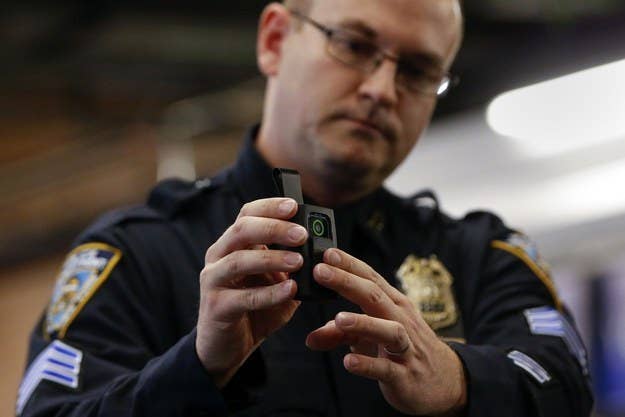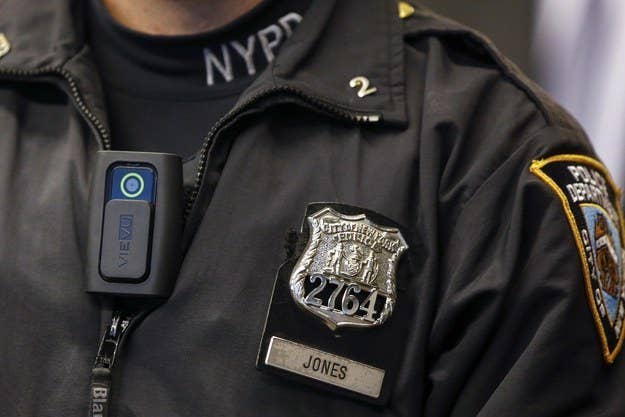
Officers in six New York City police precincts will begin wearing body cameras as part of a test program, Mayor Bill de Blasio said Wednesday, as scrutiny of how law enforcement officers interact with the people they are sworn to protect has increased in recent months.
Volunteer officers from the 120th precinct in Staten Island — where Eric Garner was killed with a police chokehold in July — the 40th precinct in the Mott Haven neighborhood of the Bronx, and Service Area 2, which patrols public housing in the housing bureau office tasked with patrolling public housing offices in northern Brooklyn, will begin using the cameras on Friday.
Next week, officers in three additional precincts will get the devices.
There are two types of devices: The cameras coming into circulation this Friday will start recording 3.8 seconds after an officer activates it. The cameras used starting next week constantly record video in 30 seconds intervals, and the officer can at any point choose to continuously record in the event of an incident.
"When something happens, to have a video record from the officer's perspective will improve the work of law enforcement," de Blasio said, speaking at the new police academy set to open in January.
De Blasio said he hoped the cameras will help create an atmosphere of respect and partnership between the police department and the community, saying they will greatly increase New Yorkers' confidence in the New York Police Department and create transparency.
"We still have to work to bring our neighborhoods and communities closer to the men and women that are protecting them," he said.
The six precincts were chosen in part by a federal court judge after deciding in the landmark Floyd vs. New York City case that the NYPD's use of stop-and-frisk was unconstitutionally racially biased.
The cost of the pilot program is approximately $50,000 and was paid for by the New York City Foundation.

Officers in the six precincts already started training in how to use the body cameras. NYPD Commissioner Bill Bratton said he is confident officers will volunteer, as unions have expressed no resistance to the program.
The testing period is expected to last three months with approximately 50 officers using the equipment. The hope is to fully understand the new technology and come up with a plan to implement the cameras city-wide.
In addition to increasing transparency, de Blasio and Bratton said they hope the body cameras will help save the city money from lawsuit settlements. In the past fiscal year, $212 million was spent in legal costs settling police-related lawsuits. Over the past five years, that number is closer to $1 billion.
Implementing body cameras comes with a number of obstacles, such as maintaining battery life and preserving privacy rights.
"Privacy pervades everything we do in government," Bratton said. "We think about that all the time but it doesn't stop us from making reforms."
Another costly concern will be on how to properly store all the data the cameras will record. At the end of every shift, officers will put their cameras in a docking device, which will automatically upload the content onto a filing system.
Jessica Tisch, deputy director of information and technology for the NYPD, said the police department is likely to opt for a cloud storage solution, as it would be impossible to store the volume of data on premises.
